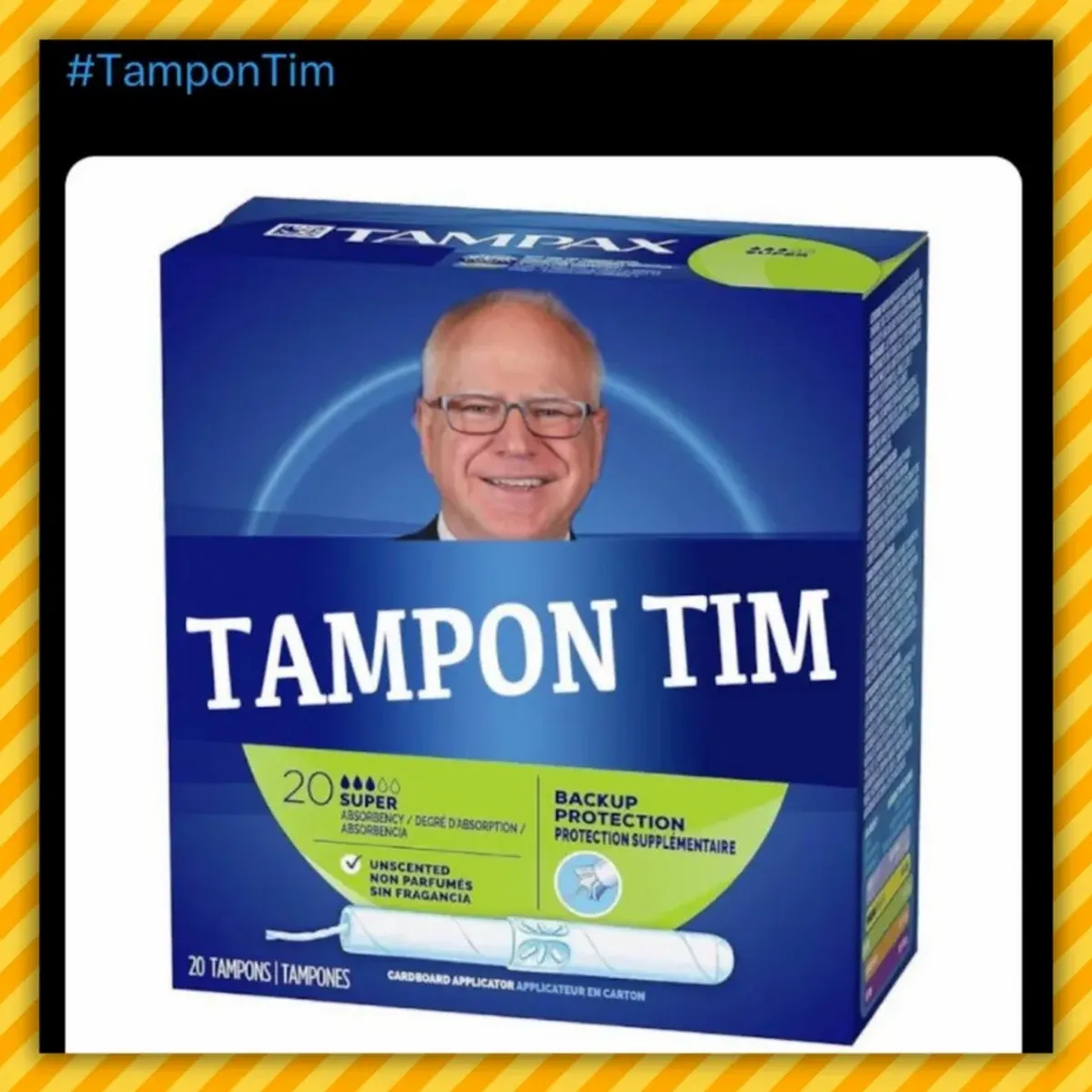Photo Credit: Snopes
As the newly minted Democratic vice-presidential nominee, Tim Walz accepted his nomination and delivered an impassioned speech at the Democratic National Convention in Chicago. Drawing on his experience as a high school football coach, Walz framed the upcoming election as the fourth quarter of a close game, with the Democrats “a field goal” behind. His speech had loads of sports metaphors and personal anecdotes, but it left one crucial question unanswered: What is the Harris-Walz playbook for America’s future?
Walz showcased his personal story, focusing on his upbringing in a small Midwestern town, his years as a teacher, and his struggle with infertility. These personal narratives aimed at introducing himself to America as “the coach next door,” but as a candidate for one of the highest offices in the land, Walz now needs to go beyond his biography. Americans need to know how he and Kamala Harris plan to tackle the pressing issues facing the country today. Will their approaches mimic those of Joe Biden, or somehow devise a new strategy beyond tax credits for new homeowners to tackle inflation, high interest rates, increased crime, dependence on foreign energy, over-reliance on electric vehicles to dominate American transportation, and underfunding of the American military in the face of several potential and real conflicts underway overseas.
One of the key moments in his speech was his mention of Minnesota’s free school meal program, a policy that reflects his commitment to expanding government welfare programs. While this may sound like a victory for working families, it raises important questions about fiscal responsibility and the role of government. Universal programs come at a cost, often resulting in higher taxes and expanded government control. Is this the type of playbook Walz envisions for America’s future—one where the government takes on an ever-growing role in our lives?
If his past as a liberal governor of Minnesota serves as prologue of his Democrat ticket’s views, we must go beyond the tribal pep rally in Chicago to question how his state style may translate to national priorities. Governor Walz, during the pandemic, imprisoned small business owners for up to 90 days for opening their shops to keep food on their family tables. He levied $1,000 fines for disobeying state mandates for not wearing masks. And, in true Orwellian style, he set up a state COVID hotline so that neighbors could snitch on their neighbors if they did not abide by social distancing rules. Does this equate to the “good neighborliness” Coach Walz called for in Chicago to extend across America? He sent the elderly sick with COVID to nursing homes where they spread the virus to vulnerable communities. This same policy cost New York Governor Cuomo his career. In stark contrast, Tim Walz received a nomination for Vice President of the United States.
Many believe the governor became a COVID Tyrant who imposed heavy-handed government overreach on Minnesotans. In a recent interview, Walz claimed, “one person’s socialism is another person’s neighborliness.” It’s time, coach, to define your fuzzy metaphors for what they truly represent: a Harris-Walz ticket wants government control over American lives.
In his speech, he referred to President Trump and J.D. Vance as “creepy and weird.” To the contrary, most Americans find that installing tampons in high school boys’ bathrooms as weird and creepy, if not just plain crazy. Governor Walz signed that into Minnesota law last year.
Mr. Walz’s service in the national guard, also frequently mentioned in Chicago, deserves a closer look as well. According to The Hill, a group of 50 Republican lawmakers who served in the military wrote to Minnesota Gov. Walz, chastising the Democratic vice-presidential nominee for “misrepresentations” of his military service. The lawmakers cited Walz’s past comments that he had carried weapons of war “in war” despite not serving in a combat zone, and his decision to resign from the National Guard before his unit deployed.
Walz’s dismissal of the Republican agenda, particularly Donald Trump’s Project 2025, as a “playbook nobody asked for,” sidesteps the legitimate policy debates that remain central to this election. Trump’s plan is built on limiting government overreach, securing borders, and restoring law and order—core conservative principles. Walz’s vague critique fails to engage with these issues, leaving voters wondering what concrete policies he and Kamala Harris will champion.
While Walz’s focus on emotional connections and personal stories may inspire some voters, others are looking for more substantive answers. With the nation grappling with inflation, border security, and foreign policy challenges, voters deserve to hear a clear and detailed playbook from Walz. How does he plan to address the economic struggles of working Americans? What is his plan to ensure national security and restore global stability? These remain questions that his team must answer as we head into the final stretch of this election.
As Coach Walz calls his team into the huddle, the American people must listen carefully. It’s time for him and his high school principal, Kamala Harris, to lay out their strategy, not just for the next few months of the academic calendar, but for the future of the country’s real-time agenda.




